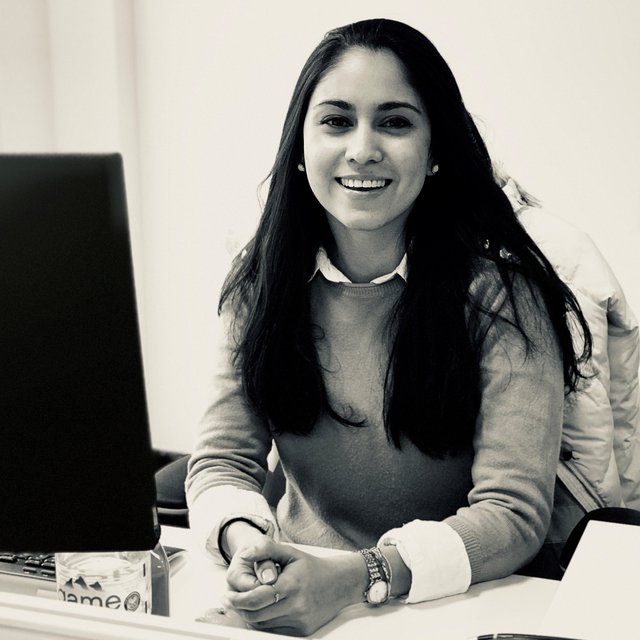Shifting power to today’s generation: Spotlight on youth at ICFP
CIFF's own Youth Fellow, Clarissa Regede, and Adolescent Sexual Health Analyst, Shanzeh Mahmood, share their key youth insights from the International Conference on Family Planning
This year the International Conference on Family Planning (ICFP) convened over 4000 delegates in the beautiful city of Kigali. The conference, hosted once every two years, brings together a community from scientists to policymakers to share best practices, celebrate achievements and set future direction towards achieving the vision of enabling 120 million more women and girls to use contraceptives by 2020.
For this to become a reality, there is an increasing need to shift power into young people’s hands and increase youth-led accountability to generate demand for family planning and self-care. What set this year’s conference apart from previous years was the clear and conscious effort to engage and learn from young people’s experiences – over 600 youth delegates were present at ICFP.
Youth-led accountability must be a priority
A number of youth interventions have sought to give young people the opportunity to share their needs with leaders in order to improve their lives. However, most of the interventions have been developed without consulting youth and due to limited resources and engagement, youth have often faced challenges in ensuring interventions address their direct needs.
At ICFP, there seemed to be an increased support towards youth-led accountability. Youth are defined by the United Nations as persons between the ages of 15 to 24 years old [1], and accountability has been defined by the World Bank as ensuring government actions and decisions are overseen by those affected by them and respond to the needs of the communities they are meant to benefit [2]. The rise of youth movements and youth-led organisations in the family planning space has led to the increase of youth-led accountability initiatives and building demand for family planning.
In most of the sessions at ICFP, youth advocates discussed barriers to sustainable youth-led accountability, highlighting limited capacity and organisational skills, which reduces their access to mainstream funding from big donors. We need more organisations and funders supporting youth-led organisations to provide them with the resources, funding, and support they need.
For many organisations, meaningful youth engagement should start at home. In 2017, CIFF developed an advisory Youth Fellow role within the organisation, endorsing a set of Meaningful Youth Engagement Principles and developing a scorecard to measure successful meaningful youth engagement, both co-created with youth. Additionally, CIFF has made plans to set up its first Youth Advisory platform in India next year to interact with youth at a local level.

Youth leading on self-care
Another key theme emerging from ICFP this year was the budding interest around self-care and the importance for young people to feel empowered to manage their own sexual health. This primarily involves providing them with more accessible supply and service options, and given the push for ensuring access to healthcare for all, this would be a welcome move – not only by alleviating pressure on overworked health systems but also by ensuring more autonomy, control and democratic access to desperately needed products and services for youth.
While self-care does not advocate for a single product or service solution, there are a number of exciting innovations that embody the approach, from online pharmacies to self-diagnosis through products such as HIV self-tests. At ICFP there was particular interest around the transformative potential of DMPA-SC for young people (Sayana Press ©), a new self-injectable contraceptive which is being introduced and rolled out in over 20 countries. With its ability to provide discrete and convenient contraceptive cover, this is an ideal method preferred by adolescent girls and young women, who can take control of their own sexual reproductive health. CIFF has invested in the global market shaping, communications and service delivery efforts to realise the potential for self-injection.
CIFF and the Hewlett Foundation have also launched a Self-Care Trailblazers Group to promote and support the advancement of the self-care agenda. This group will convene a wide range of implementers, researchers, funders and youth advocates to plug research gaps, organise self-care themes at critical events, and support governments in embedding self-care in national policy and practice.
We are hopeful that the movement is growing to even include adult allies in building sustainable youth-led accountability and access to self-care, but the push for such progress must start from within organisational structures themselves. By 2020 at the next International Conference on Family Planning, we hope to see youth movements with increased capacity, flourishing partnerships and significant input regarding policy-making and project development in relation to sexual health.
[1] https://www.un.org/esa/socdev/documents/youth/fact-sheets/youth-definition.pdf
[2] https://siteresources.worldbank.org/PUBLICSECTORANDGOVERNANCE/Resources/AccountabilityGovernance.pd

Clarissa Regede
Clarissa Regede is the Youth Fellow at CIFF, advising on CIFF’s Meaningful Youth Engagement work, and is part of the Strategic Engagement and Communications team in the London office.

Shanzeh Mahmood
Shanzeh Mahmood is an Analyst on Adolescent Sexual Health at CIFF, and is part of the Adolescent team in the London office.